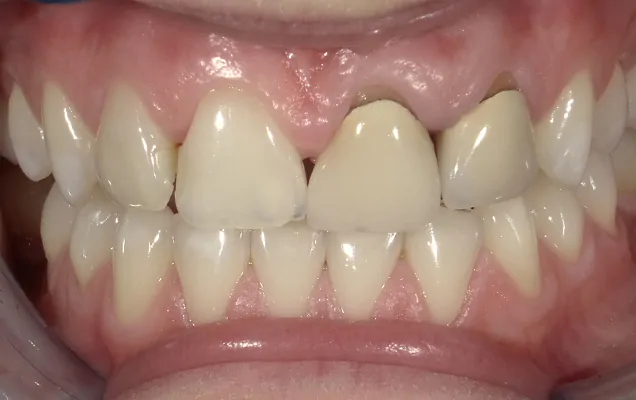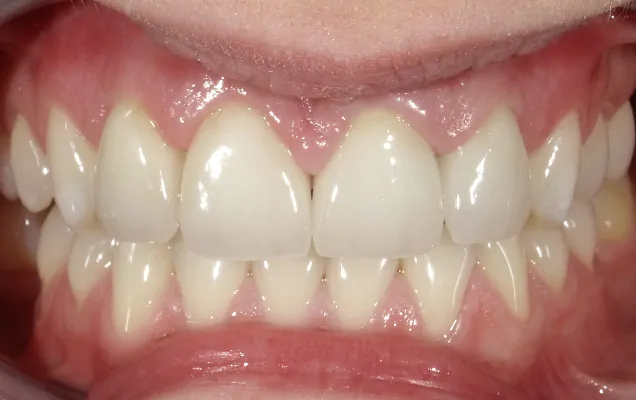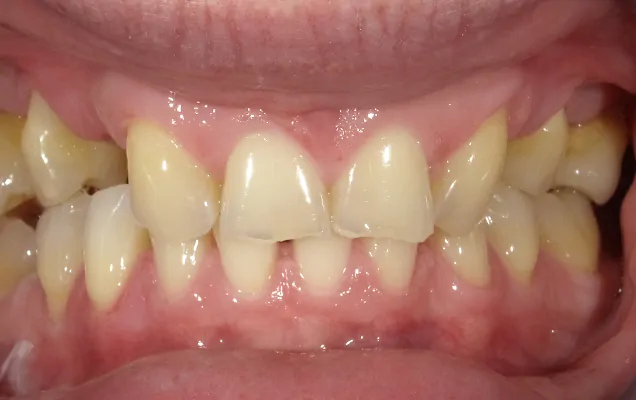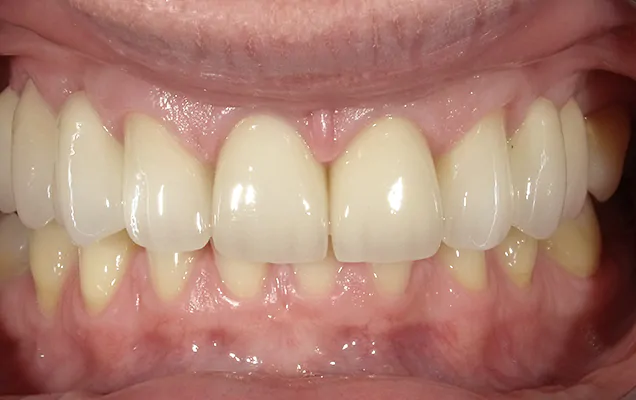Prostetyka Zakopane – at the Center of Dentistry Medical Clinic Podhale Art. We cordially invite you!
It is a branch of dentistry that deals with the detailed restoration of the original condition of the teeth after the loss of natural teeth. This also applies to teeth after they are significantly damaged or weakened. For reconstruction, prosthetic restorations are used that can be worn by the patient permanently (cannot be removed from the mouth). The dentures can also be removable or combined. Filling missing teeth should be done both for health and aesthetic reasons so that you can enjoy a nice, healthy smile.
Our specialists during consultations, including a thorough examination of the condition of the dentition. They will propose specific methods and make an individual valuation of the restorations.
Aesthetic prosthetics Zakopane – here we offer many prosthetic solutions, tailored to the individual needs of the patient:
One of the ways to supplement missing teeth is a prosthetic bridge. It is a permanent prosthetic solution that settles permanently in the oral cavity. A prosthetic bridge can be placed on a natural tooth, which is ground and forms the span of the bridge. The advantage of prosthetic bridges is that they improve chewing comfort and look aesthetically pleasing. They are an alternative to removable dentures. They are permanent restorations, which increases the comfort of their use and facilitates everyday functioning.
The indications for a prosthetic bridge are missing teeth.
This applies to both missing single teeth and several that can be rebuilt. Prosthetic bridges can be used in situations where there is no possibility of implantological treatment.
Advantages of prosthetic bridges:
Removable dentures are removable dentures made of acrylic material. The main indication for their use are cases of toothlessness or extensive missing teeth, when it is not possible to make other types of restorations (skeletal, permanent, implant-based dentures). Removable dentures can also be made of nylon. The nylon denture is characterized by high flexibility – it adapts to the surface. This is very important because, unlike traditional acrylic dentures, it does not expose the patient to discomfort associated with its use. Other advantages of using the nylon solution are: shorter period of adaptation of the patient to the new prosthesis and its simpler structure.
Removable dentures are less comfortable than permanent dentures.
However, thanks to the plate of the removable denture lying on the alveolar processes, they distribute the forces generated by chewing and biting over a larger area, thus relieving weak or few teeth. Clamps, which are classic elements that keep the denture on the ground, are not aesthetic, often unacceptable by patients. Currently, they can be replaced with bolts, latches and telescopes, which give a very good aesthetic effect and avoid rubbing the buckles against the tooth.
Overdenture – also known as skeletal dentures, without clasps on latches, are among the most advanced prosthetic restorations. They have all the advantages of standard skeletal dentures, but at the same time they do not have visible metal clasps – undesirable especially in the anterior segment of the dentition. The maintenance of non-clamps skeletal dentures is ensured by the use of various types of latches, locks, bolts or magnets.
They are removable prosthetic restorations, covering the entire surface of the root, the roots of the remaining dentition or implants.
These dentures are held on the roots or implants by a system of clasps (most often ball-shaped). These are restorations that meet the requirements of aesthetics, protect the jaw bones from disappearance and ensure acceptable comfort for the patient.
It is worth paying attention to the possibility of making an overdenture based on only 2 implants in the mandible and maxilla in edentulous patients. The patient can thus improve his comfort at a lower cost.
Immediate dentures are the fastest way to replace missing teeth. They allow to avoid the unpleasant situation for the patient, which is the lack of own teeth, while ensuring full functionality and aesthetic value. After tooth extraction, the patient comes out with a ready-made prosthesis that replenishes all the gaps. During the first visit, dental impressions are taken intended for removal, and in the next stage, the finished prosthesis is waiting for the patient in the office. Its use requires perfect oral hygiene and reporting for follow-up visits.
Frame dentures are a modern solution for a removable prosthetic restoration, characterized by high comfort of use. They are perfect for patients who have some of their own teeth, but due to their arrangement, they cannot have a prosthetic bridge inserted. The construction of such prostheses is smaller in relation to classic detachable prostheses and, therefore, much more comfortable.
A skeletal denture consists of acrylic or nylon elements covering toothless processes and metal elements connecting them.
As it rests on the teeth and, in addition, on the gums, it prevents bone loss, which is usually seen in sagging dentures.
They are used in many different configurations of missing teeth. Thanks to a very durable metal frame, the prosthesis does not occupy such a large area of the palate or the sublingual area as a traditional acrylic.
Call us and make an appointment – aesthetic prosthetics Zakopane, ul. Chramcówki 7, tel: +48 18 265 74 27
Crown inlays are porcelain restorations that are currently the most modern prosthetic solution, enabling the exact reconstruction of the anatomical shape of the teeth (grooves, contact points between the teeth). It is made on the basis of the taken impressions. The inlay filling covers part of the chewing surface of the tooth – the cusp slopes, but without their tops. Modern dental materials and cavity preparation techniques make it possible to replace this type of filling with composite. Onlay filling – Onlay – is similar to the inlay filling, but already contains the tops of the cusps. So it covers the entire chewing surface of the tooth. It also helps to recreate the so-called contact points, i.e. places where the teeth meet each other. It is a very durable filling which additionally protects the tooth against cracking. Inlays of this type are used in the case of large cavities (e.g. in side teeth treated with a root canal, which are not yet eligible for prosthetic treatment with the use of an inlay and a crown).
The crown-root inlay, commonly known as a stick, is a restoration made of glass fiber, dental steel, gold alloy or zirconium oxide, which is placed in the tooth root and then cemented with a special substance that guarantees its proper functioning. Teeth strengthened in this way are less likely to crack or fracture, and placing the crown on the inlay allows for the full reconstruction of their appearance and life functions.
Prosthetic crowns are a supplement that rebuilds and strengthens damaged teeth. They are placed on the patient’s teeth or on implants, perfectly recreating the anatomical shape of the damaged dentition.
Medical Clinic Podhale Art – aesthetic prosthetics in Zakopane, offers several types of crowns, different in terms of the material from which they were made.
Prosthetic crowns are used in the case of:
The use of crowns is usually based on grinding the tooth (under local anesthesia) so that the crown made by a prosthetist looks natural.
The use of implants enables a stable anchoring of dentures, embedding bridges and allows the insertion of a crown filling. In addition, it facilitates the recovery of the chewing function, it does not require elimination grinding of adjacent teeth and can be introduced even in patients with complete toothlessness, guaranteeing a comprehensive reconstruction of the teeth. It is a durable, effective solution that protects bones and gums.
Feel free to contact our facility – aesthetic prosthetics Zakopane, Chramcówki 7, tel: +48 570 401 401

























